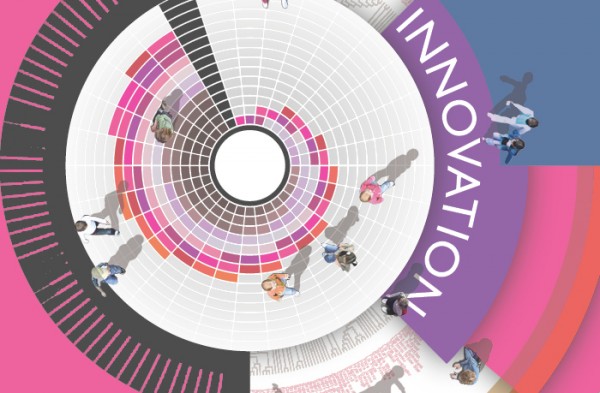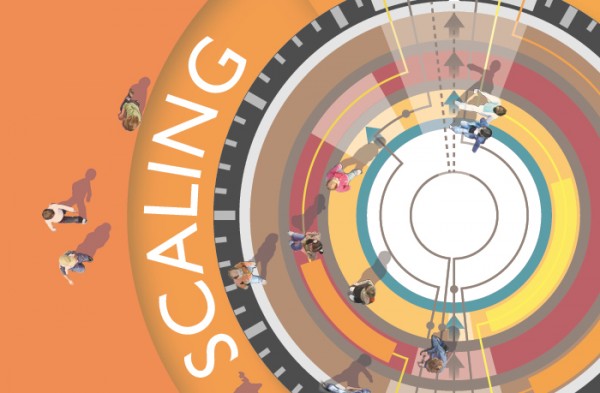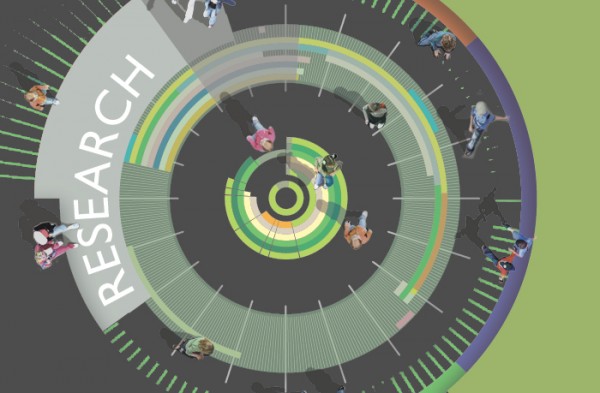Making All Voices Count is proud to announce the following awarded proposals, chosen from a pool of 544, to transform government responsiveness and effectiveness.
Making All Voices Count– the new global initiative to support innovative ways for governments to work with and for their citizens – has announced the winners of its first call for proposals. Twenty-eight global innovators have been awarded funding to enhance government accountability and boost citizen engagement in Ghana, Indonesia, Kenya, Liberia, Nigeria, South Africa, Tanzania and Uganda.
Making All Voices Count is focused on supporting innovation to find new ways for governments to respond to the priorities of their people. This initiative is aimed at growing the global movement for open government, transparency and accountability.
The programme’s first call for proposals was announced on September 23, 2013 immediately following President Barack Obama’s speech made during a Civil Society Roundtable event held on the sidelines of the United Nations General Assembly, in which he urged members to work together to make governments more open and accountable.
“We’re excited to be supporting proposals that will make a real difference in transforming civic engagement in government decision-making,” said Programme Director Marjan Besuijen. “In addition, these innovations will enhance government’s ability to respond to citizen’s demands and needs.”
From a total of 544 proposals received, the following cutting-edge solutions have been selected for the following three components of the open call: Innovation, Scaling and Research.
Awarded nominees for Making All Voices Count’s Innovation component:
- World’s First Global Search Engine for Public Data: Stat.io will create the first search engine for the world’s public data, aggregating, standardizing and visualizing all open data onto one web platform to enable citizens, globally, to hold their governments to account.
- Open Data Experts to Change Ghana’s Media Culture: The World Wide Web Foundation’s Code4Ghana will form a community of open-data experts, and embed them into media organisations to create the internal systems and resources necessary to embed data as a critical component of the Ghanian newsroom culture.
- Mobile Tool to Access Public Budget Data & Facilitate Feedback: The Uganda Overseas Development Institute will develop mobile and web tools to make budget data released by the Uganda Ministry of Finance, more freely available and accessible by those most directly affected.
- Transforming Indonesia’s Child Protection System: Save the Children aims to employ both tech and non-tech tools to engage children, parents and key stakeholders to improve government accountability and increase family participation in child protection services in Indonesia.
- Citizen Action Platform to Address the Full Cycle of Grassroots Monitoring: The Partnership for Transparency Fund proposes a flexible, open source, web-platform to empower citizens in Uganda and Kenya to report government corruption and seek redress.
- Giving a Voice to Survivors of Gender-based Violence: Foundation for Professional Development Ltd seeks to build on its relationship with Thuthuzela Care Centres (TCC) and implement an ambitious, multi-stakeholder project to track and trace survivors of sexual assault in South Africa through appropriate health, justice and psychosocial support services.
- Closing the Feedback Loop to Empower Citizens in Liberia: The Global Citizens’ Initiative will work with the Ministry of Gender and Development as well as employ innovative ICT-tools, to engage women and youth groups in Liberia to report sexual abuse and ensure these experiences are incorporated in the design of new policies and programmes for implementing the sexual abuse provision of the National Children’s Law.
- Anonymous SMS Hotline to Promote Police Accountability: Search for Common Ground aims to decrease corruption and enhance trust, transparency and accountability of the Liberia National Police (LNP), by creating an SMS-based reporting system to monitor and report corruption.
- Open Content in Kalimantan – Wikipedia & OpenStreetMap for Transparency: Building upon OpenStreetMap and Wikipedia’s tools to provide open content and data online, Perkumpulan Wikimedia Indonesia will create a toolkit to assist both local communities and the government in Indonesia to produce information, document their knowledge and map capacity in their localities.
- Creative Communication to Catalyse Change in Nairobi’s Slums: Mtaani Initiative proposes to engage with graffiti artists to spread data-based information in Nairobi’s slums in order to empower citizens to make data-driven arguments. Links will be forged between digital storytellers, mappers and bloggers to produce collaborative, high quality, multimedia reports.
- Game My Village – Improving Participatory Planning & Budgeting in Indonesia: Singergantara will create a game that allows citizens to develop a village with the budget and information currently available to the local government, with the aim of enhancing citizen engagement and government transparency.
- SMS Service to Strengthen Accountability & Delivery of Maternal Care: Pathfinder International seeks to use mobile phones to gather feedback from women on maternal health services, and use this data to monitor government performance with the aim of strengthening care in Nigeria.
- Involving Citizens in Decision-making Processes in Liberia: Platypus Productions aims to engage with transparency champions on the ground through a secure mobile app, in order to aid understanding of Liberia’s natural resources and create an interactive experience which will bridge the gap between data and policymakers, the government and general public.
- Yowzit to Improve Public Service Delivery in South Africa: Yowzit proposes a rating and review system to improve public service delivery in South Africa. This web and mobile platform will allow consumers and service providers, both public and private, to interact.
- Singing & Social Media to Empower Kenya’s Rural Women: Caritas-Kitui Justice and Peace Programme aims to empower rural women in Kenya to engage with their leaders across a variety of platforms to participate in budget-making and the prioritisation, monitoring and implementation of development activities.
- Ending Abuse of Pre-trial Detention Practices in Liberia: The East-West Management Institute will utilize ICTs to develop a new intake database that will serve as a platform to broadcast the voices of vulnerable Liberian citizens – the forgotten pre-trial detainees in Monrovia’s central prison system.
- Increasing Transparency in Pharmaceutical Procurement: Transparency International Kenya seek to construct a pharmaceutical pricing reference guide in order to achieve a transparent and accountable pharmaceutical procurement process in Kenya.
Awarded nominees for Making All Voices Count’s Scaling component:
- Fraud Analysis Programme Confronts e-Procurement Corruption: Indonesia Corruption Watch proposes expansion of its e-Procurement Potential Fraud Analysis (PFA) programme that monitors the Indonesian government’s electronic procurement system.
- Mobile Drug Tracking System to Improve the Availability of Medicine in Kenya: Transparency International Kenya will construct a pharmaceutical pricing reference guide aimed at enhancing transparency in pharmaceutical procurement, to result in price predictability. The project’s ultimate aim is a transparent procurement process for the public sector.
- Solutions to Transform Health Care in Marginalised Communities in Kenya: The International Rescue Committee aims to improve outreach services provided by Ministry of Health facilities to 37 outreach posts, by incorporating an SMS platform to aggregate information and illustrate service delivery gaps, as well as identify potential improvements.
- Citizen Journalism Catalyses Debate & Accountability in South African Health Care: Health E-News Services aims to provide a platform for marginalized citizens to voice their experiences of public health services, to ensure government solutions are shaped around the lived realities of citizens.
- ‘Municipal Barometer’ for Citizen-Government Dialogue & Effective Local Governance: The Centre for Municipal Research and Advice seeks to scale up its Municipal Barometer Support Program in South Africa, a tool to collect and disseminate local data for both municipalities and citizens with a view to improving government responsiveness.
- Closing the Gaps in Freedom of Information Legislation to Improve Public Service Delivery: The Carter Center seeks to enhance Freedom of Information (FOI) laws in Indonesia, Uganda and Nigeriaby applying their Access to Information Implementation Assessment tool to identify implementation gaps.
- Enhancing the Implementation of Liberia’s Freedom of Information Act: mySociety seeks to promote awareness and use of Liberia’s Freedom of Information (FOI) act, which despite guaranteeing effective, equitable and inexpensive exercise of the right to freedom is infrequently used by citizens.
- Embedding Citizen Feedback in Public Service Delivery Processes: Global Communities seeks to scale up its collaboration with Sekondi-Takoradi Metropolitan Assembly (STMA) to improve citizens’ feedback on public services and enhance the information flow to and from STMA using Citizen Report Cards (CRC) and SMS. CRCs developed in the pilot identified gaps in service delivery.
Awarded nominees for Making All Voices Count’s Research component:
- Researching the Role of Anonymity in Giving Citizens a Voice: Tactical Tech proposes to research the role of anonymity in giving citizens a voice and whether anonymity makes a difference to the inclusiveness of Tech for Transparency & Accountability initiatives and the inclusion of marginalised voices in the citizen-state feedback loop.
- Improving the Implementation of ICT tools for Accountability & Transparency: The Engine Room Foundation will conduct research to generate better understanding of the social processes involved in the adoption and implementation of ICT tools for accountability and transparency.
- Closing the Knowledge Gap in using ICTs to Improve Rural Water Supply Sustainability: WaterAid will explore how ICT for monitoring can be strengthened, and made more inclusive, to achieve greater sustainability of rural water services.


